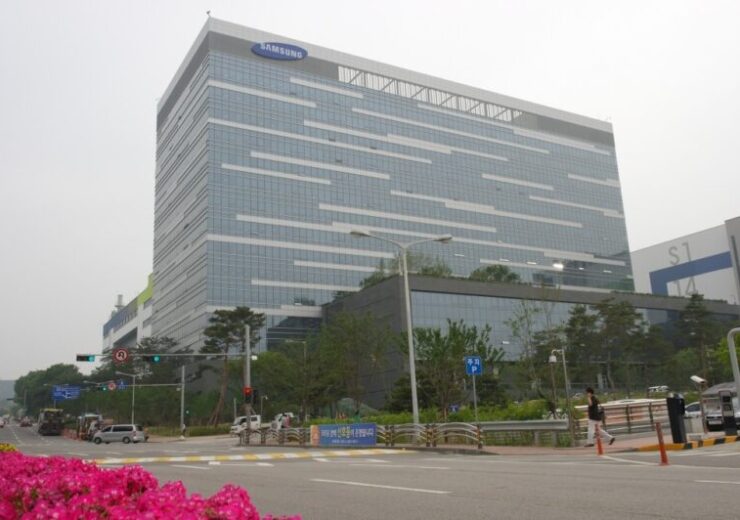The investment to be made by the technology major is part of a private-sector investment plan announced by the South Korean government to be made into the core industries including semiconductors, displays, secondary batteries, biotechnology, future vehicles, and robots by 2026

Samsung to develop chip-making base in South Korea with an investment of $229bn. (Credit: SAMSUNG)
Samsung Electronics is reportedly expecting to invest KRW330 trillion ($230bn) in South Korea through 2042 to develop an advanced semiconductor cluster in Gyeonggi-do.
The investment to be made by the South Korean technology major is part of a KRW550 trillion private-sector investment plan announced by the South Korean government.
According to the government, the private-sector investment will be made into the core industries including semiconductors, displays, secondary batteries, biotechnology, future vehicles, and robots by 2026.
Samsung’s manufacturing expansions comprise five chip plants as well as drawing up to 150 materials, parts and equipment makers, fabless chipmakers and semiconductor research-and-development organisations near Seoul.
The government has also announced its plans to provide more than KRW25 trillion for five years for research and development of 12 national key technologies including quantum and artificial intelligence (AI).
Besides, it will provide nearly KRW360bn to develop chip packaging, and about KRW100bn in electricity and water infrastructure this year for industrial complexes.
The government stated: “When the new cluster is created, it is expected that the world’s largest ‘ semiconductor mega cluster ‘ will be completed by linking existing production complexes (Giheung, Hwaseong, Pyeongtaek, Icheon, etc) with nearby small and general companies, and Fabless Valley (Pangyo).
“The mega cluster will become a ‘ leading model of global semiconductor cluster ‘ that integrates the entire value chain of semiconductors, such as memory – foundry – design house – fabless – general manager, and excellent talents at home and abroad.
“The cluster will carry out joint technology development and demonstration projects among companies, research institutes, and universities, and will greatly contribute to strengthening the competitiveness of the semiconductor ecosystem by supporting the production of semiconductors developed by our fabless.”
In a separate announcement, Samsung SDI and Samsung Electro-Mechanics revealed plans to invest KRW60.1 trillion over the next 10 years outside the Seoul metropolitan area to advance chip packaging, displays and battery technology, reported Reuters.
In August 2022, Samsung Electronics started construction on a new KRW20 trillion ($15bn) semiconductor research and development (R&D) complex in Giheung, South Korea.


